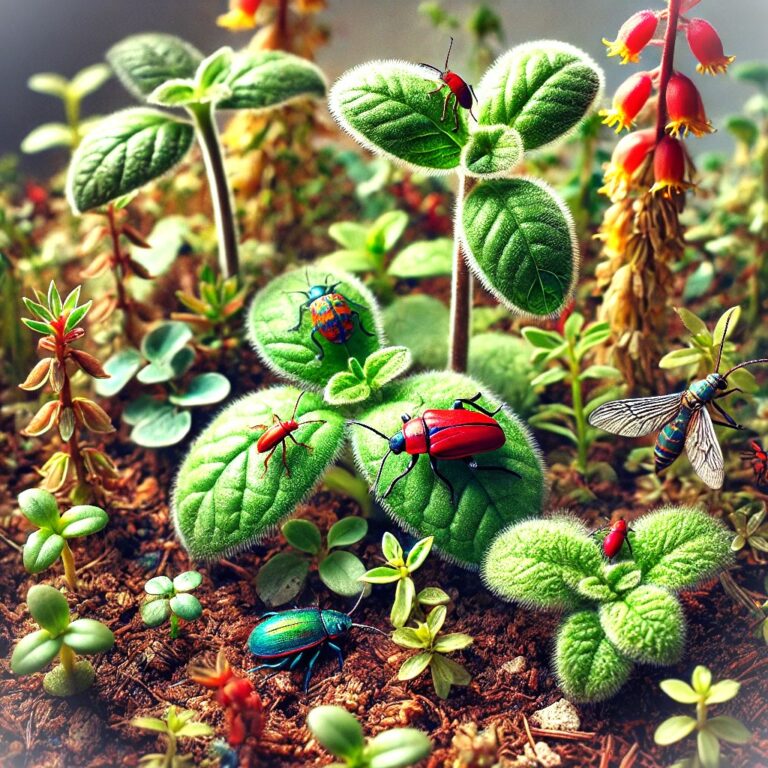Introduction
Maintaining a garden can be a delightful experience, but it often comes with the challenge of pests. Using organic pest control methods ensures your garden remains healthy without the harmful effects of chemical pesticides. This guide offers practical tips and natural solutions to manage pests organically.
Understanding Common Garden Pests
Discovering the pests in your garden is the first step in effective pest control. Common garden pests include aphids, caterpillars, snails, and slugs. Each pest requires a specific approach for management.
Signs of Pest Infestation
- Aphids: Look for clusters of new growth and curled leaves.
- Caterpillars: Check for chewed leaves and frass (caterpillar droppings).
- Snails and Slugs: Look for slime trails and holes in leaves.
Prevention Strategies
Prevention is the best form of pest control. Creating an inhospitable environment for pests can reduce the likelihood of infestations.
Crop Rotation
Rotating crops every year helps prevent pest buildup. Different plants attract different pests, and rotation disrupts their life cycles.
Companion Planting
Particular plants repel pests or attract beneficial insects. For example, marigolds deter nematodes, while basil repels mosquitoes and flies.
Organic Pest Control Methods
When prevention isn’t enough, organic pest control methods can help manage pests effectively.
Natural Repellents
- Neem Oil: A natural pesticide that works against a variety of pests.
- Garlic Spray: Effective against aphids and other soft-bodied insects.
- Soap Spray: Kills insects by breaking down their protective outer layer.
Beneficial Insects
Introducing beneficial insects into your garden can naturally control pest populations. Ladybugs, lacewings, and predatory wasps are excellent choices.
Attracting Beneficial Insects
Plant flowers like dill, fennel, and yarrow to attract beneficial insects. A water source and shelter also encourage them to stay in your garden.
Homemade Remedies
Creating your pest control solutions can be cost-effective and environmentally friendly.
Recipes for Homemade Sprays
- Garlic and Chili Spray: Blend garlic cloves and hot peppers with water, strain, and spray on plants.
- Baking Soda Solution: Mix baking soda with water and a few drops of dish soap to combat fungal infections.
Physical Barriers
Physical barriers can protect your plants from pests without the use of chemicals.
Types of Barriers
Row Covers: Lightweight fabric that lets light and water through while keeping pests out.
- Copper Tape: Effective against slugs and snails when placed around plant bases.
Organic Products
If homemade solutions aren’t sufficient, several organic products are available on the market.
Recommended Organic Products
- Diatomaceous Earth: A natural powder that dehydrates and kills insects.
- Bt (Bacillus thuringiensis): A bacteria that targets specific pests like caterpillars.
Monitoring and Maintenance
Regularly monitoring your garden helps catch pest problems early. Inspect plants weekly and remove any pests by hand if possible.
Record Keeping
Keep a garden journal to track pest activity and the effectiveness of your control methods. This information will be valuable for future gardening seasons.
Conclusion
Organic pest control effectively maintains a healthy garden without harmful chemicals. Understanding common pests, implementing prevention strategies, and using natural remedies can protect your garden and enjoy a bountiful harvest.
- Growing Bonsai: Tips for Miniature Tree Enthusiasts
- Buying Bonsai: Tips for Selecting Your Perfect Tree
- Bonsai Potting: Essential Tips for Tree Care Success
- Bonsai Maintenance: Essential Care for Tiny Trees
- Mastering the Art of Shaping Bonsai: A Beginner’s Guide
Source: Effective Strategies for Protecting Your Crops


